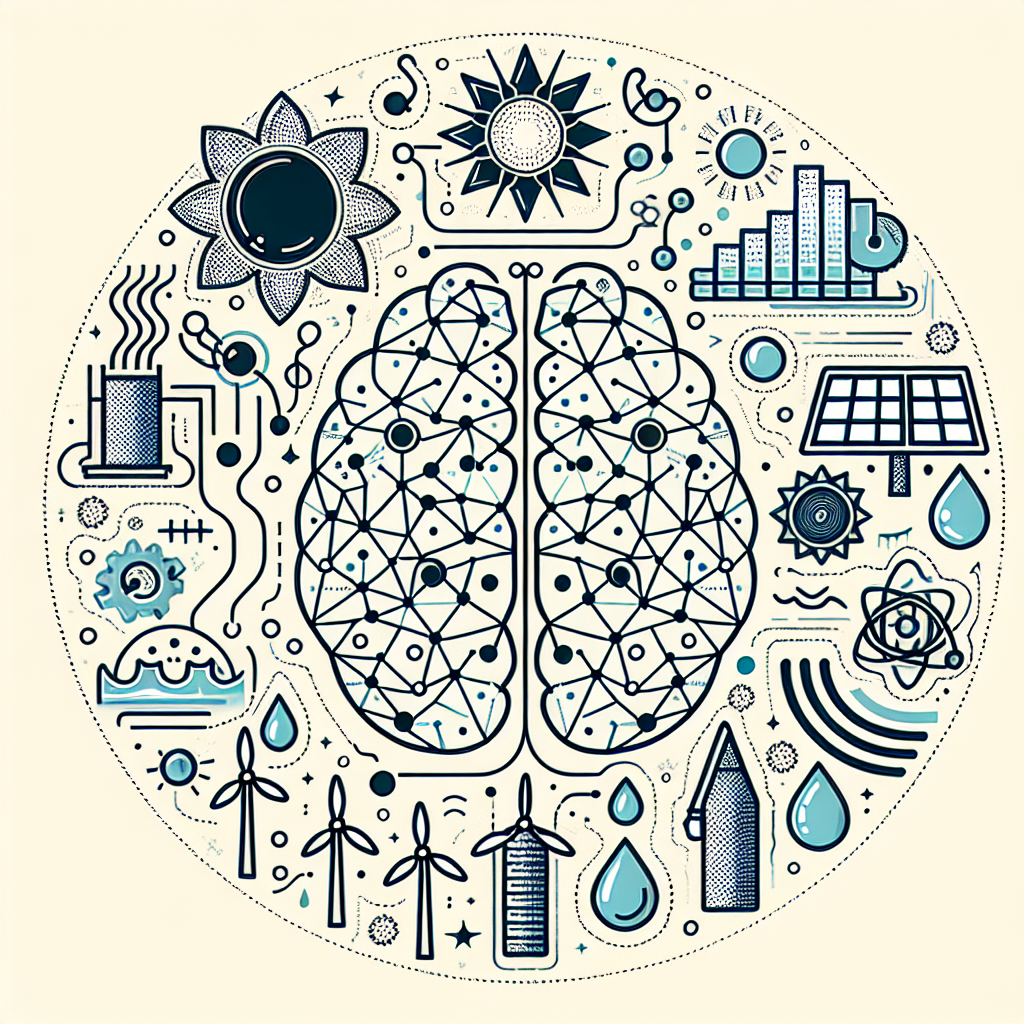In recent years, the world has seen a growing interest in renewable energy sources as a way to combat climate change and reduce our dependence on fossil fuels. Solar, wind, and hydroelectric power are just a few of the renewable energy sources that have gained popularity in the energy industry. However, effectively harnessing and utilizing these energy sources can be a complex and challenging task. This is where artificial intelligence (AI) technology comes in.
AI technology has the potential to revolutionize the way we generate, store, and distribute renewable energy. By leveraging AI algorithms and machine learning, we can optimize the efficiency of renewable energy systems, predict energy generation, and reduce costs. In this article, we will explore how AI technology is enhancing renewable energy usage and its potential impact on the energy industry.
Optimizing Energy Production
One of the key challenges in renewable energy production is the variability of sources such as solar and wind power. Unlike traditional energy sources like coal or natural gas, renewable energy sources are dependent on weather conditions and are not always available when needed. AI technology can help address this challenge by predicting energy generation and optimizing energy production.
For example, AI algorithms can analyze weather data, historical energy production, and other relevant factors to predict how much energy will be generated by solar panels or wind turbines in the future. This information can then be used to adjust energy production levels in real-time, ensuring that energy is generated when it is most needed and reducing waste.
In addition to predicting energy generation, AI technology can also optimize the operation of renewable energy systems. By constantly monitoring and analyzing data from sensors and other sources, AI algorithms can identify inefficiencies in the system and suggest ways to improve performance. This can help reduce maintenance costs, increase energy production, and extend the lifespan of renewable energy systems.
Increasing Energy Storage Capacity
Another challenge in renewable energy production is the intermittent nature of sources like solar and wind power. Energy generated during peak production periods may not always align with energy demand, leading to wasted energy or the need to rely on backup energy sources. Energy storage systems, such as batteries, can help address this issue by storing excess energy during periods of high production and releasing it when needed.
AI technology can play a crucial role in optimizing energy storage systems and maximizing their efficiency. By analyzing data on energy production, consumption patterns, and weather conditions, AI algorithms can determine the best times to charge and discharge batteries, ensuring that energy is stored and used efficiently. This can help reduce costs, improve grid stability, and increase the overall reliability of renewable energy systems.
Improving Grid Management
In addition to optimizing energy production and storage, AI technology can also enhance the management of energy grids. As more renewable energy sources are integrated into the grid, the need for advanced grid management solutions becomes increasingly important. AI algorithms can help monitor and control energy flow, predict demand, and identify potential issues before they occur.
For example, AI technology can analyze data from smart meters, sensors, and other sources to predict energy demand patterns and adjust energy production levels accordingly. This can help reduce the risk of blackouts and ensure that energy is distributed efficiently to where it is needed most. AI algorithms can also identify and address potential grid vulnerabilities, such as overloaded transmission lines or equipment failures, before they lead to widespread outages.
FAQs
Q: How is AI technology being used to optimize renewable energy production?
A: AI algorithms can analyze weather data, historical energy production, and other factors to predict energy generation and optimize production levels in real-time. This helps ensure that energy is generated when it is most needed and reduces waste.
Q: How does AI technology improve energy storage capacity?
A: AI algorithms can analyze data on energy production, consumption patterns, and weather conditions to determine the best times to charge and discharge batteries. This maximizes the efficiency of energy storage systems and ensures that energy is stored and used efficiently.
Q: How can AI technology enhance grid management?
A: AI technology can monitor and control energy flow, predict demand, and identify potential grid issues before they occur. This helps reduce the risk of blackouts, ensure efficient energy distribution, and address grid vulnerabilities.
Overall, AI technology has the potential to revolutionize the renewable energy industry by optimizing energy production, increasing energy storage capacity, and improving grid management. By leveraging AI algorithms and machine learning, we can make renewable energy sources more reliable, cost-effective, and sustainable. As we continue to explore the possibilities of AI technology in the energy industry, we can expect to see even greater advancements in the field of renewable energy usage in the years to come.

